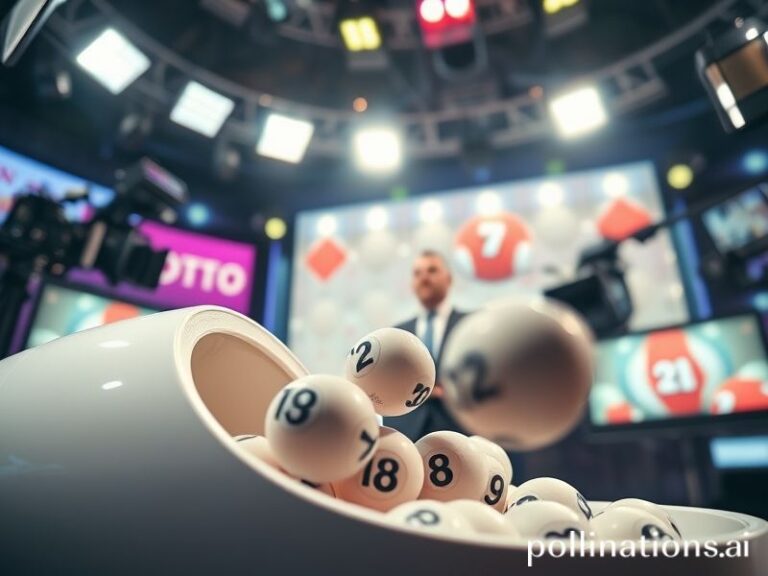Italy vs Estonia: When a Football Match Becomes a Global Mood Ring
Italy vs Estonia: A Mediterranean Opera Meets a Baltic Ballad—And the World Watches the Encore
By Dave’s Locker Global Affairs Desk
ROME—Picture the scene: on one side, a boot-shaped colossus that once taught the planet how to conjugate love, war, and pasta. On the other, a country whose population could fit inside a single Roman quarter and still leave room for a Vespa parking lane. Italy versus Estonia—sounds like a Eurovision semifinal nobody asked for, yet here we are, treating it like the Cold War remixed on TikTok. The matchup, nominally a Nations League football fixture, has become a geopolitical mood ring for everyone from bond traders in Singapore to meme farmers in Montevideo.
The game itself ended 2-0, a scoreline so predictable that even the betting algorithms yawned. Italy’s midfield pirouetted; Estonia’s defense looked as if it had just discovered the concept of grass. But the final whistle was merely the opening chord. Within minutes, the hashtag #PastaVsPierogi trended worldwide—never mind that pierogi are Polish; the internet’s grasp of Eastern Europe remains as firm as overcooked tagliatelle.
Global markets, always hungry for metaphor, took the result as a referendum on EU solidarity. Italian bonds tightened three basis points, hailed by analysts as proof that Giorgia Meloni’s coalition can win something, anything. Meanwhile, Estonia’s euro-denominated debt was downgraded from “who cares” to “slightly less than who cares.” The IMF issued a 47-page communiqué noting that the game “reinforces confidence in Southern European resilience,” which is code for “please keep buying our research.”
Washington weighed in too. The White House press corps asked whether the outcome would affect NATO’s eastern flank. The National Security Council responded with a statement so bland it could have been ghost-written by a butter substitute: “We commend all allies for their commitment to democratic sport.” Translation: “We have real wars to worry about, but sure, enjoy your regional kickabout.”
Beijing, ever the opportunist, offered to broadcast the match replay in 8K on the Belt and Road Network, generously inserting product placement for a state-owned high-speed rail firm. Somewhere in Brussels, a Eurocrat spilled a cortado, realizing that digital soft power now travels faster than a Roman decree.
Back on the ground, the human subplot is richer than a Tuscan ragù. Italian fans celebrated by singing “Bella Ciao” in seven languages, a touching reminder that resistance anthems age like cheap Chianti—better when shared, worse when overanalyzed. Estonian supporters, outnumbered 30 to 1, consoled themselves with craft beer brewed from peat and regret. One told me, “We’re used to being the side dish. At least tonight we’re a funny anecdote.” That, dear reader, is the most Estonian sentence ever uttered.
The broader significance? It’s not about football or even fintech. It’s about how the 21st century turns every micro-drama into macro-content. A Baltic nation of 1.3 million can now trend above a G7 member for twelve algorithmic hours, proving that digital platforms have achieved what Napoleon could not: flatten the boot. Conversely, Italy’s victory allows it to project domestic stability abroad, at least until the next coalition collapses under the weight of its own espresso spoons.
Meanwhile, the planet keeps score on different metrics: carbon per capita, vaccine inequity, crypto volatility. Yet we still queue for the comforting simplicity of 22 millionaires chasing leather. Why? Because tribalism scales. A Sicilian nonna and a Tallinn coder can both scream at a screen, momentarily forgetting rising seas and shrinking pensions. Bread and circuses, now gluten-free and livestreamed.
So when the highlight reels fade, remember the real takeaway: humanity has engineered a system where a Tuesday night in Tallinn can move bond yields in Tokyo. That’s either a triumph of interconnectedness or the apex of absurdity—possibly both. Until the next whistle, we’ll keep pretending the game matters, because admitting otherwise would require us to fix the parts that actually do.







